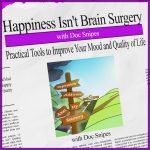
Dialectical Behavior Therapy Techniques
Emotion Regulation
Presented by: Dr. Dawn-Elise Snipes Executive Director, AllCEUs
Podcast Host: Counselor Toolbox & Happiness isn’t Brain Surgery
Author: Journey to Recovery (2015) & Happiness Isn’t Brain Surgery (2017)
Objectives
~ Explore emotion regulation techniques
~ Mindfulness
~ Identifying and labeling emotions
~ Changing emotions/Improving the next moment
Mindfulness
~ Nonjudgmental observation and description of current emotions
~ Remember that primary emotions are often adaptive and appropriate
~ Much emotional distress is a result of secondary responses:
~ Shame over having it
~ Anxiety about it being “wrong”
~ Rage due to feeling judged for it
~ Mindfulness serves as an exposure technique
Mindfulness
~ Exposure to intense emotions without negative consequences (Nonjudgmental acceptance) extinguishes the secondary emotional response
Identifying and Labeling Emotions
~ Mindfulness in context
~ Identify
~ The event prompting the emotion
~ Thoughts
~ Physical Sensations
~ Urges
~ Expressive behaviors associated with the emotion
~ Interpretations of that event
~ History prior to the event that increased vulnerability to emotional dysregulation
~ After effects of the emotion on other types of functioning
Changing Unwanted Emotions
~ Check the facts
~ For and Against
~ Emotional vs. Factual reasoning
~ Problem Solving
~ Changing the situation that is causing the unpleasant emotion
~ Prevent vulnerabilities
~ Reduces reactivity
~ By turning down the stress response
~ Helping the person be aware of and able to learn/remember positive experiences
Reducing Vulnerability to the Emotional Mind
~ Building mastery through
~ Activities that build self-efficacy, self-control and a sense of competence to handle your stressors
~ Goal Setting
~ Small steps
~ Mental Rehearsal
Reducing Vulnerability to the Emotional Mind
~ Physical Body-Mind Care
~ Pain and illness treatment
~ [Laughter]
~ Eating to support mental and physical health
~ Addictive or mood altering drugs or behaviors
~ Sleep
~ Exercise
Activity
~ Creating Mastery
~ Think of a situation that often gets you upset or stressed out.
~ Identify the thoughts causing your distress
~ Check the facts
~ Identify how you want to react (set a goal)
~ Identify the steps in making that happen (don’t forget to eliminate vulnerabilities & care for mind and body)
~ Rehearse it in your mind. See yourself successfully handling the situation
Summary
~ Emotional dysregulation is common in many disorders
~ People with dysregulated emotions have a stronger and longer lasting response to stimuli
~ Emotional dysregulation is often punished or invalidated, increasing hopelessness and isolation
~ Emotional regulation means
~ Using mindfulness to
~ Be aware of and reduce vulnerabilities
~ Identify the function and reinforcers for current emotions
~ Checking for facts
~ Problem solving
Connect With Us
